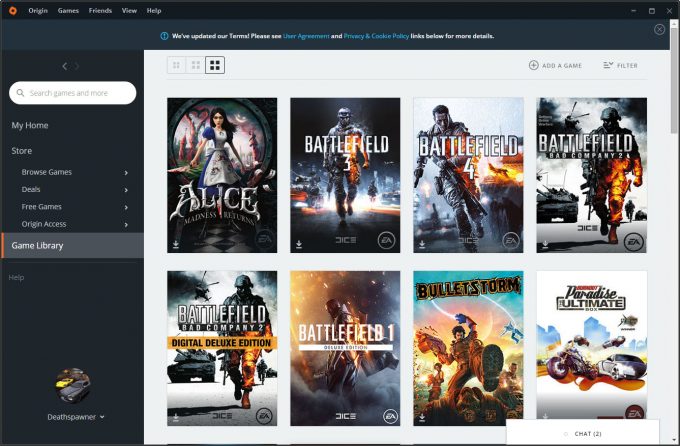- Qualcomm Launches Snapdragon 4 Gen 2 Mobile Platform
- AMD Launches Ryzen PRO 7000 Series Mobile & Desktop Platform
- Intel Launches Sleek Single-Slot Arc Pro A60 Workstation Graphics Card
- NVIDIA Announces Latest Ada Lovelace Additions: GeForce RTX 4060 Ti & RTX 4060
- Maxon Redshift With AMD Radeon GPU Rendering Support Now Available
EA Has Proven Why We Should Be Worried About Our Ownership Of Digital Collections
EA’s Origin game client hasn’t been showered with the same kind of love people have shown towards Steam, but over its lifetime, it has gotten better – a lot better. But while that’s the case, the Internet never forgets, so when EA or Origin slips up somehow, it’s almost impossible to avoid hearing about it.
However, while it’s hard to disagree that Origin has its issues, we saw proof this past weekend that not all of the issues are within EA’s control. Or so EA would like us to believe, at least.
Over at reddit this past weekend, user trivial_sublime wrote about his Origin games becoming inaccessible out-of-nowhere. This user lives in Myanmar, which up until the 7th of this month had been placed under economic sanctions. With those sanctions lifted, access to Origin should have been restored, but it wasn’t.
By all appearances, it looks like Origin worked just fine in Myanmar until last month, when EA decided to pull out in accordance with the law. That’s understandable; what’s not is why it took so long for EA to restore the service – we’re talking three weeks later, here. And while it’s understandable that EA would have to adhere to the law, what’s not clear is why competing platforms, like GOG and Steam, had never ceased operating in Myanmar throughout it all.
Nonetheless, seemingly as a result of the reddit post, EA got on the case quite swiftly, and resolved it. It is important to note that some other countries remain under sanctions, so Origin is still not available in those (Iran being one of them).
Whether or not EA is at fault for dragging its feet with this issue is neither here nor there. What this incident does remind us of, though, is that our digitally purchased games are not “owned”. Had EA not restored access to Origin in Myanmar, trivial_sublime would have had the games he paid for disappear. There’s no reason to believe that this wouldn’t ever happen with a service like Steam, despite how large it is. GOG is probably the safest bet where this is all concerned, since it allows you to download entire installers and use them outside of any overarching client.
It might be time for companies like GOG and Valve to draw attention to this potential issue, and at least explain why we shouldn’t be worried that something like this could happen.





